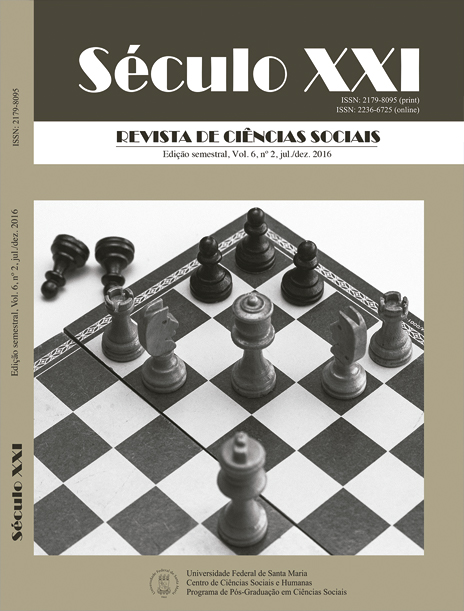Standards of political competition in the democratic elections for the Presidency of the Republic in Brazil (1945-1960 and 1989-2014): a historical description
DOI:
https://doi.org/10.5902/2236672526327Keywords:
Electoral Competition, Presidential Elections History, Brazilian Institutional StabilityAbstract
This paper proposes to analyze the historical trajectory of competition and the levels of electoral competitiveness in Brazilian democratic presidential contests. His goal is specifically quantitatively describe the political-electoral games at times when was democratic competition in the periods between the years 1945- 1960 and 1989-2014 putting them in confrontation with theories and historical explanations of the various electoral moments of the country. Therefore, we seek to solve three issues able to shed light on the existing competition standards: 1) what are the quantitative characteristics of competitors? 2) What are the dispersion characteristics or votes concentration in them? 3) The electoral positions were subject to big changes in preferences? Finally, seen that are satisfactory levels of electoral competition around free presidential elections in Brazil, indicating that in the case this facet (analysis of the political-electoral system among the candidates), there is considerable potential for the realization and consolidation of democracy in the country, although the recurrence of disruptive events throughout history.Downloads
Downloads
Published
How to Cite
Issue
Section
License
Authors who publish in this journal agree with the following terms:
1. Authors keep the copyrights and allow the journal the right of first publishing, having the paper simultaneously licensed by Creative Commons Attribution License that allows the sharing of the article – copyright recognized - and first publishing in this journal.
2. The journal is allowed to require the copyrights transfer, allowing the article to be used under noncommercial purposes, including the right to send the paper to Free Access or Paid databanks, not assuming the obligation to pass on the value charged from users to the authors.
3. Authors are allowed to take additional contracts separately for nonexclusive distribution of the paper’s version published in this journal (e.g. publishing in institutional repository or as book chapter), recognizing the copyright and first publishing in this journal.







